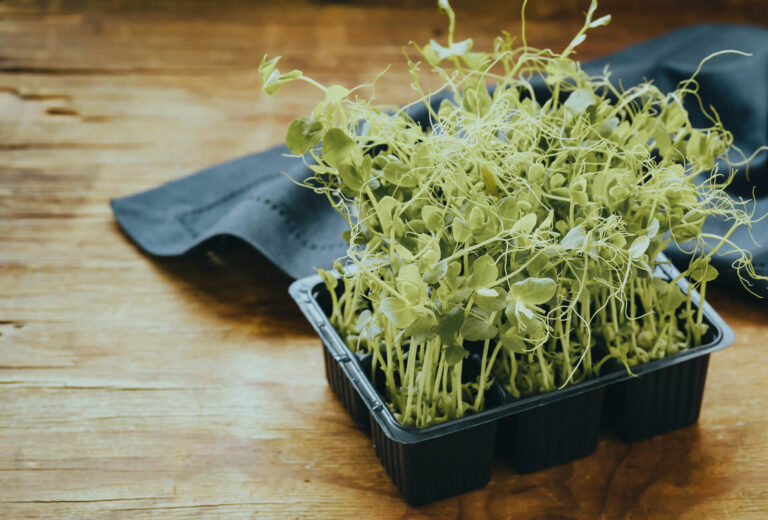Unleashing social responsibility in agriculture
- Our Sustainable Farm (OSF)
Farming has been an important part of human civilization for thousands of years. Our society, like the methods used to produce the food we eat, has evolved and grown. There has recently been a growing trend toward socially conscious farming, which takes the environmental and social impact of farming.

An Overview of Socially Conscious Farming
Socially conscious farming is an agricultural practice that incorporates ethical, social, and environmental awareness considerations into its process. In this farming approach, the well-being of communities, the environment, and the animals involved are prioritized while nutritious and high-quality food is produced.
This type of farming is becoming more popular as consumers become more aware of the environmental and social impacts of their food choices and seek out products that align with their values. Socially conscious farming prioritizes sustainability, social responsibility, and ethical treatment of workers, animals, and the environment to create a more equitable and sustainable food system for the future.

Socially Conscious Farming Elements
Farming that prioritizes social and environmental responsibility is referred to as “social-conscious farming.” The following are the key components of socially conscious farming:
Conservation tillage, crop rotation, and reduced use of pesticides and chemicals are some of the practices used by socially conscious farmers to maintain the health and productivity of their land.
Socially conscious farmers ensure that their farming practices are culturally appropriate and in line with community values in addition to promoting healthy food systems.
Farmers prioritize fair labor practices, providing safe and healthy working conditions, fair wages, and benefits for their workers to be socially conscious.
Farmers with a social conscience plant a variety of crops, raise livestock, and raise other animals to protect biodiversity.
Socially conscious farms prioritize the well-being of their animals, providing them with the best nutrition, living conditions, and care possible.
Many socially conscious farmers share their farming practices with customers, giving them a better understanding of where their food comes from.
Farmers who are socially conscious strive to run their businesses in a sustainable manner, ensuring that their communities have access to food for future generations.
These components of socially conscious farming work together to promote a holistic, responsible, and long-term approach to food production that benefits communities, farmers, and the environment.


How can we increase farmers' social consciousness about farming?
To make farmers more socially conscious, we must educate them about the social and environmental consequences of their practices, as well as provide them with the tools and resources they need to adopt sustainable practices.

Farmers can take the following steps to become more socially conscious about farming
Farmers can reduce the use of harmful chemicals, conserve soil and water resources, and adopt alternative methods such as agroforestry by learning about sustainable farming practices.
Governments, non-governmental organizations (NGOs), and private organizations can encourage farmers to use sustainable technologies such as precision irrigation, water-saving technologies, and renewable energy sources.
By encouraging farmers to collaborate and share knowledge and resources, it is possible to foster a sense of community around sustainable farming practices.
Encourage consumers to choose products produced using sustainable practices to influence their consumption. Farmers can benefit from this by being financially rewarded for implementing environmentally friendly practices.
Public awareness of the social and environmental impacts of farming practices can help shift public attitudes and create demand for more sustainable farming practices.


The Challenges and Prospects of Socially Conscious Farming
Several factors, as listed below, are threatening the growth and success of socially conscious farming.
Due to high transportation costs or competition from large-scale producers, small-scale farmers may find it difficult to access markets.
Many small-scale farmers without access to financing find it difficult to develop sustainable farming practices and expand their businesses.
Farmers are often resistant to changing their practices because they have been using the same methods for decades. This is especially true if they are concerned about disruption and cost.
Many farmers lack the knowledge and experience needed to implement sustainable farming practices, such as reducing fertilizer and pesticide use.
Despite these challenges, the future of socially conscious farming is bright. Food that is produced in a sustainable and ethical manner is likely to be in higher demand as consumers become more aware of the environmental and social consequences of their food choices.
Furthermore, technological advancements are making sustainable farming methods more affordable and accessible. Farmers, for example, can optimize their operations and use resources such as water and fertilizer more efficiently with the help of technology and data.
In general, the ability of farmers, policymakers, and consumers to work together to create a more sustainable and equitable food system will determine the future of socially conscious farming. If we encourage innovation, investment, and education, future generations will have access to healthy, sustainable food.
Conclusion

Socially conscious farming is all about providing sustainable food while also adhering to social responsibility. By prioritizing the needs of communities, workers, and the environment, socially conscious farming promotes a more equitable and sustainable world. Socially conscious farming benefits both society and the environment by implementing sustainable farming practices, supporting fair trade, promoting local communities, protecting the environment, and promoting animal welfare.


SUMMARY:
Socially conscious farming is an agricultural practice that prioritizes sustainability, social responsibility, and ethical treatment of workers, animals, and the environment to create a more equitable and sustainable food system for the future.
It is becoming more popular as consumers become more aware of the environmental and social impacts of their food choices and seek out products that align with their values. The key components of socially conscious farming include sustainability, participation in the community, working conditions, biodiversity, animal care, transparency, financial viability, and a holistic, responsible, and long-term approach to food production.
To make farmers more socially conscious, it is important to educate them about the social and environmental consequences of their practices, provide them with the tools and resources they need to adopt sustainable practices, promote the use of environmentally friendly technologies, encourage community involvement, create market incentives, and raise public awareness.

However, there are challenges to the growth and success of socially conscious farming, such as limited market access, inadequate funding and investment, and resistance to change. Socially conscious farming is all about providing sustainable food while also adhering to social responsibility. It is likely to be in higher demand as consumers become more aware of the environmental and social consequences of their food choices.
Technological advancements are making sustainable farming methods more affordable and accessible, and the ability of farmers, policymakers, and consumers to work together to create a more sustainable and equitable food system will determine the future of socially conscious farming.








